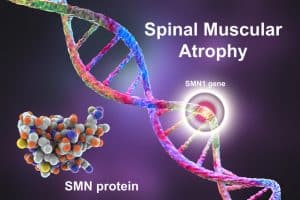
Vertex’s cystic fibrosis drug gets FDA approval
pharmafile | July 3, 2015 | News story | Research and Development, Sales and Marketing | FDA, Orkambi, Vertex, cystic fibrosis, gene therapy
Vertex Pharmaceuticals cystic-fibrosis drug Orkambi, which could treat as many as 8,500 patients in the US, has been approved by the FDA.
At an astonishing annual wholesale cost of $259,000 per patient, Orkambi (lumacaftor and ivacaftor) is aimed at treating patients with the F508del genetic mutation, the underlying cause of cystic fibrosis (CF). The mutation affects the function of the lungs and digestive system and causes the symptoms of the illness, which often kills patients in their 20s.
The twice-daily oral tablet for patients aged 12 and over, and expands Vertex’s reach in the treatment of cystic fibrosis. The company says the new drug will be available for shipment to specialty pharmacies in the US within days.
The FDA granted Orkambi breakthrough therapy designation, and approved it as an orphan drug as an acknowledgement of the rarity of cystic fibrosis. In the US orphan drug designation provides companies with financial incentives, like clinical trial tax credits, user fee waivers, and eligibility for market exclusivity to promote rare disease drug development.
“The FDA encourages manufacturers to develop new and innovative treatments for serious rare diseases like cystic fibrosis,” says Dr John Jenkins, who is director of the office of new drugs at the FDA’s, center for drug evaluation and research. “Today’s approval significantly broadens the availability of targeted treatments for the specific defects that cause cystic fibrosis.”
While Dr Jeffrey Leiden, Vertex’s chairman, president and chief executive, says: “Today is a remarkable day for science, medicine and the CF community. More than 15 years ago, our scientists set out to discover and develop medicines to treat the underlying cause of cystic fibrosis.
“The approval of Orkambi represents a fundamental change in the treatment of the most common form of CF, marking significant progress for us and for the entire community.”
Outside of the US, Vertex has submitted Orkambi for regulatory approval in the European Union, Australia and Canada. A decision by the EMA is anticipated by the end of 2015.
It comes as researchers at Imperial College London published the results of the first trial of gene therapy as a treatment for cystic fibrosis. The Phase II study found for the first time that the technique – which involves replacing the defective gene response for cystic fibrosis by using inhaled molecules of DNA to deliver a normal working copy of the gene to lung cells – is linked to significant improvements in lung function.
However the study of 136 patients found inconsistent results, with some patients responding better than others and a doubling of the treatment’s effect in patients with the worst lung function at the start of the study. Overall, the gene therapy was well tolerated and patients in the treatment and placebo groups experienced similar rates of adverse events.
Professor Stephen Hyde from the gene medicine research group at the University of Oxford, who co-authored the study published in The Lancet, say: “We are actively pursuing further studies of non-viral gene therapy looking at different doses and combinations with other treatments, and more efficient vectors.”
And co-author Dr Alastair Innes from the Western General Hospital in Edinburgh adds: “Publication of this trial is a landmark for cystic fibrosis patients.”
Yasmita Kumar
Related Content

Rare diseases – spinal muscular atrophy
Spinal muscular atrophy (SMA) is a rare disease characterised by voluntary muscle weakness that can …

Five Facts about spinal muscular atrophy
1 Spinal muscular atrophy (SMA) is a genetic disease involving the loss of motor neurons …

MRM Health’s ulcerative colitis treatment receives FDA Investigational New Drug clearance
Microbial Resource Management (MRM) Health has announced that its lead programme, MH002, has received Investigational …






